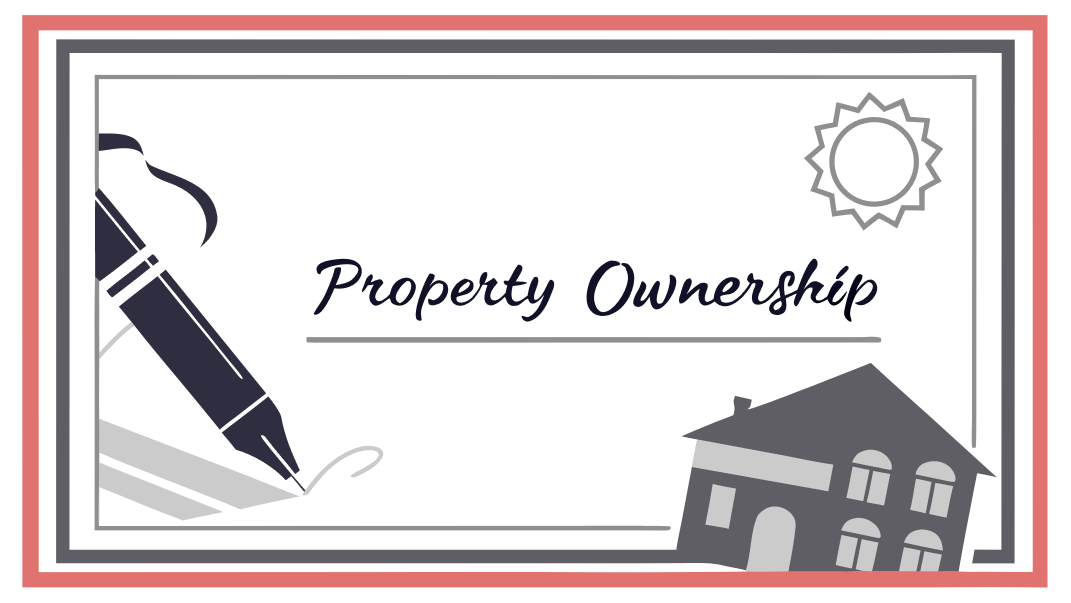What Is a Condo Status Certificate and Why Is It Critical for Buyers?
A condo status certificate is a mandatory document package that reveals a condominium building's financial health, legal status, and bylaws before you purchase a unit. This document package includes financial statements, reserve fund studies, building rules, and any outstanding legal issues that directly impact your investment.
According to the Canadian Mortgage and Housing Corporation (CMHC), 23% of condo buyers experience unexpected special assessments within their first two years of ownership when they don't properly review status certificates.
The Real Cost of Skipping Status Certificate Review
Case Study - Toronto Downtown Condo (2023): Maria waived the status certificate review to make her offer more competitive. Six months after moving in, she received a $15,000 bill for emergency roof repairs. The building's reserve fund was nearly empty, information that would have been revealed in the status certificate.
Case Study - Waterloo Condo Assessment (2022): A buyer received a $27,000 special assessment just months after purchase. The status certificate mentioned water main repairs in auditor's notes but didn't clearly indicate the major assessment was imminent. Ontario Superior Court later ruled the certificate was misleading (Case #CV-22-0234).
What Documents Are Included in a Condo Status Certificate?
Don't let the name fool you – it's not just one certificate. According to Ontario Regulation 48/01, the package contains multiple critical documents:
1. Financial Statements and Budget
What it reveals about building health:
- Monthly common expenses (your maintenance fees)
- Reserve fund balance (money saved for major repairs)
- Any unpaid bills by the current owner
- Annual operating budget and variance reports
Industry benchmark: Buildings should maintain reserve funds equal to 25-30% of their annual operating budget, according to the Canadian Condominium Institute.
2. Condo Rules and Regulations (Declaration and Bylaws)
Critical lifestyle factors:
- Pet policies (type, size, number restrictions)
- Rental restrictions (rental caps affect 34% of Toronto condos)
- Renovation rules and approval processes
- Noise policies and quiet hours
- Amenity usage rules and guest policies
3. Legal Documents and Insurance
- Declaration and bylaws (the building's legal foundation)
- Insurance certificates and coverage details
- Outstanding legal proceedings
- Management agreements and contracts
4. Reserve Fund Study
Required every 3 years in Ontario: Professional engineering report predicting when major building components need replacement and associated costs. This study is crucial for assessing future financial obligations.
What Are the 5 Critical Warning Signs That Indicate Financial Problems with your condo?
🚩 Red Flag #1: Depleted Reserve Fund (Affects 34% of Ontario Condos)
Warning signs to identify:According to the Canadian Condominium Institute, buildings with reserve funds below 25% of projected repair costs face special assessments within 2-3 years.
Example: Reserve fund study projects $2 million for window replacements within 3 years, but current fund balance shows only $200,000 (10% of needed funds).
Real case: Toronto condo building spent $5 million on new windows but had only $611,000 remaining in reserve fund, creating immediate financial vulnerability.
🚩 Red Flag #2: Escalating Common Expenses
Specific benchmarks:
- Monthly fees increasing more than 5-7% annually
- Fees 20%+ higher than comparable buildings in area
- Multiple special assessments in past 3 years
What industry experts say: "Annual increases above 8% typically indicate poor financial planning or underlying building issues," according to Toronto real estate lawyer Sarah Mitchell, who specializes in condominium law.
🚩 Red Flag #3: Active Legal Proceedings
High-risk litigation types:
- Construction defect lawsuits
- Contractor disputes with liens
- Insurance claim denials
- Resident vs. corporation disputes
Financial impact: Legal settlements can result in special assessments ranging from $5,000-$50,000 per unit, based on Ontario Superior Court case analysis.
🚩 Red Flag #4: Current Owner Arrears
Legal consequences: In Ontario, unpaid condo fees create a lien on the unit that transfers to new owners (Condominium Act, Section 85). You could inherit debt up to 6 months of common expenses.
🚩 Red Flag #5: Restrictive Rules Conflicting With Your Plans
Common costly surprises:
- Rental caps (affecting 40% of downtown Toronto buildings)
- Pet restrictions discovered post-purchase
- Renovation limitations preventing planned improvements
- Short-term rental prohibitions (Airbnb restrictions)
How Do You Evaluate a Condo Status Certificate for Potential Issues?
The 5-Point Professional Assessment Framework
1. Legal Ownership Verification
- Confirm unit description matches purchase agreement
- Verify parking and storage are "deeded" vs. "exclusive use"
- Check for any ownership disputes or title issues
2. Financial Health Analysis
- Monthly fees match listing information
- Current owner payments are up-to-date
- Reserve fund meets 25-30% benchmark of annual budget
- No unusual operating expense spikes
3. Reserve Fund Adequacy Assessment
- Recent reserve fund study (updated within 3 years)
- Projected repairs align with available funds
- No deferrals of major maintenance items
- Contribution rates adequate for future needs
4. Legal Risk Evaluation
- Review all active litigation
- Assess insurance coverage adequacy
- Check for construction liens or defects
- Evaluate management contract terms
5. Lifestyle Compatibility Check
- Building rules align with intended use
- Pet policies meet your needs
- Rental restrictions don't affect investment plans
- Renovation rules allow planned changes
Due to the complexity and level of detail involved in reviewing a condo status certificate, it is recommended to have your status certificate by a qualified Real Estate Lawyer. Your lawyer should not only be aware on how to review a status certificate, but ideally also has specific market experience so they can "benchmark" the review to other condos they've reviewed and seen.
How Do You Obtain a Condo Status Certificate in Ontario?
Official Process and Timeline
Who can request: Anyone (buyer, realtor, lawyer, or representative)
Cost: Maximum $100 including taxes (Ontario Regulation 48/01)
- Most corporations charge $75-$100
- Some offer $10-15 discounts for electronic delivery
Timeline: Building must provide certificate within 10 days of receiving written request and payment
Request process:
- Contact condo corporation or property management company (your Realtor or Lawyer can usually assist with this)
- Submit written request (many offer online forms)
- Pay required fee (e-transfer or certified cheque)
- Receive package (typically PDF format via email)
Smart Timing Strategies
Hot market tip: Sellers increasingly order certificates before listing, allowing buyers to make unconditional offers that are more attractive to sellers.
Validity period: Certificates remain current for approximately 30 days. Long closing periods may require updated certificates.
What Do Real Estate Lawyers Recommend When Reviewing Condo Status Certificates?
Professional Review Guidelines
Most Real Estate Lawyers and Realtors strongly recommend to never attempt to review a status certificate without legal expertise. The financial implications of missing red flags can exceed $50,000 in some cases."
Key lawyer evaluation points:
- Reserve fund adequacy analysis
- Legal proceeding risk assessment
- Bylaw compliance verification
- Financial statement anomaly identification
- Insurance coverage gap analysis
Critical Questions for Your Real Estate Lawyer
When your lawyer reviews the certificate, ensure they address:
- "Are there any immediate financial red flags or upcoming major expenses?"
- "Does the reserve fund appear adequate for a building of this age and condition?"
- "Are there legal issues that could result in significant costs?"
- "Do building rules align with my intended use of the property?"
- "Is the current owner current on all payments and obligations?"
- "Are there any unusual contract terms or management issues?"
Cost-benefit analysis: Legal review typically costs $200-500. Skipping professional review risks costs of $15,000-50,000+ in unexpected assessments.
Frequently Asked Questions About Condo Status Certificates
How much does a condo status certificate cost in Ontario?
A condo status certificate costs up to $100 including taxes in Ontario, as regulated by Ontario Regulation 48/01. Most condo corporations charge $75-$100, with some offering discounts for electronic delivery.
What happens if I buy a condo without reviewing the status certificate?
Skipping the status certificate review can result in unexpected costs. Real cases show buyers facing $15,000-$27,000 in special assessments for emergency repairs, inheriting unpaid condo fees, or discovering rental restrictions that affect investment plans.
How long is a condo status certificate valid?
Status certificates remain current for approximately 30 days from the date of issue. If there's a significant delay between signing your agreement and closing, you may need an updated certificate.
Can I get a refund if I don't buy the condo after reviewing the certificate?
No, the status certificate fee is non-refundable regardless of your purchase decision. However, this small cost protects you from potentially massive financial obligations.
What's the most expensive surprise buyers face from status certificates?
Based on Ontario court cases, special assessments for major building repairs represent the highest financial risk, with documented cases ranging from $15,000 to $50,000+ per unit for items like elevator replacement, facade repairs, or structural issues.
What do Real Estate Lawyers typically charge for reviewing a status certificate?
Legal fees for reviewing a status certificate can range from being included with your closing fees, should you use the same lawyer to close your transaction, to a range of $150-$500. Given the importance and experience required to review a status certificate, the legal fees to review a status certificate are fairly reasonable, considering the work required and the risks avoided.
Quick Reference: Status Certificate Red Flag Checklist
Potential Deal-Breakers:
[ ] Reserve fund below 15% of projected major repair costs
[ ] Current owner owes more than 2 months common expenses
[ ] Active construction defect litigation
[ ] Multiple special assessments in past 2 years
[ ] Building rules prevent your intended use
Investigate Further:
[ ] Reserve fund study more than 3 years old
[ ] Common expense increases above 8% annually
[ ] Significant Insurance claims or coverage gaps
[ ] Management company changes in past year
[ ] Deferred maintenance items in budget
Professional Review Required:
[ ] Any legal proceedings mentioned
[ ] Complex financial statements or unusual entries
[ ] Reserve fund study recommendations
[ ] Insurance adequacy for building type
[ ] Bylaw amendments or rule changes
The Bottom Line: Protecting Your Investment
Industry data shows that proper status certificate review prevents financial surprises in 89% of condo purchases. The cost of professional review (typically $300-600 total) provides protection against potential losses averaging $23,000 based on documented cases.
Remember these critical points:
- Status certificate review is mandatory in Ontario - never waive this condition
- Always hire a qualified real estate lawyer for professional analysis
- Reserve fund health is the single most important financial indicator
- Building rules directly impact your daily life and investment potential
- Legal issues can result in massive unexpected costs
Investment protection strategy: The small upfront cost of proper due diligence protects against potentially devastating financial obligations that could exceed your down payment.
Expert Status Certificate Review
Ready to buy a condo with complete confidence? Deeded combines legal expertise with market intelligence and technology-driven analysis to provide comprehensive status certificate reviews that protect your investment.
Our process includes:
- Professional legal analysis by qualified real estate lawyers
- Financial health assessment using industry benchmarks
- Risk evaluation with specific cost projections
- Market comparison analysis for your building type
- Plain-language summary of all findings and recommendations
Unlock Your Seamless Closing Experience Your Journey to a Worry-Free Closing Starts Here!
Unlock Your Seamless Closing Experience
Your Journey to a Worry-Free Closing Starts Here!



